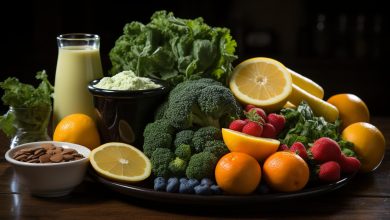The Role of Protein in Running and Muscle Recovery: Best Sources and Timing
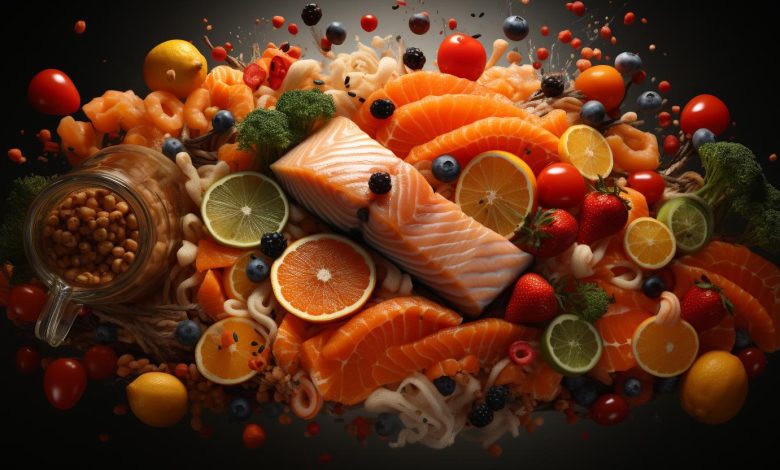
Imagine this: you’re a runner. You lace up your shoes, hit the pavement, and push yourself to new limits.
But did you know that the key to maximizing your performance and recovery lies in protein? Yes, protein plays a crucial role in running and muscle repair.
In this article, we’ll explore the best sources of protein for muscle recovery and the optimal timing for consumption after a run. Get ready to learn how to fuel your body for success on the road or trail!
The Importance of Protein for Runners
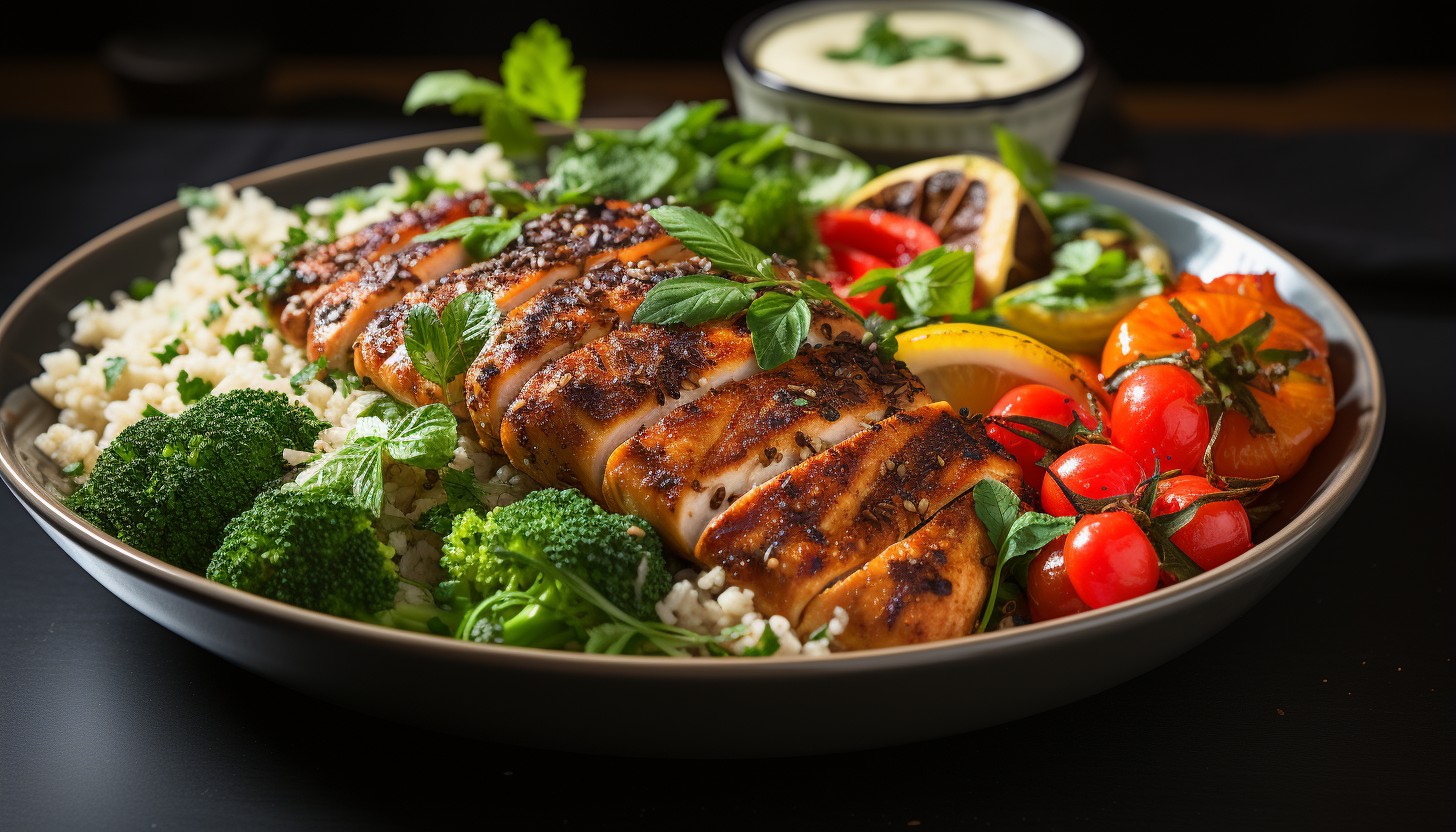
You need to understand the importance of protein for your running performance and muscle recovery. Protein is essential for runners because it helps repair and rebuild damaged muscle tissue, supports a healthy immune system, and aids in proper hormone function.
As a runner, your protein requirements may be higher than those of sedentary individuals. The American College of Sports Medicine recommends that endurance athletes consume 1.2-2.0 grams of protein per kilogram of body weight per day.
While it’s possible to meet your protein needs through whole foods alone, many runners find benefits from protein supplementation. Protein supplements can provide a convenient and easily digestible source of high-quality protein that can aid in muscle recovery after intense training sessions or races. Additionally, supplementing with protein shakes or bars can help ensure you’re meeting your daily protein goals when whole food sources are not readily available or practical.
Now that you understand the importance of protein for your running performance and muscle recovery, it’s time to discuss choosing the right protein sources for optimal results.
Choosing the Right Protein Sources for Muscle Recovery
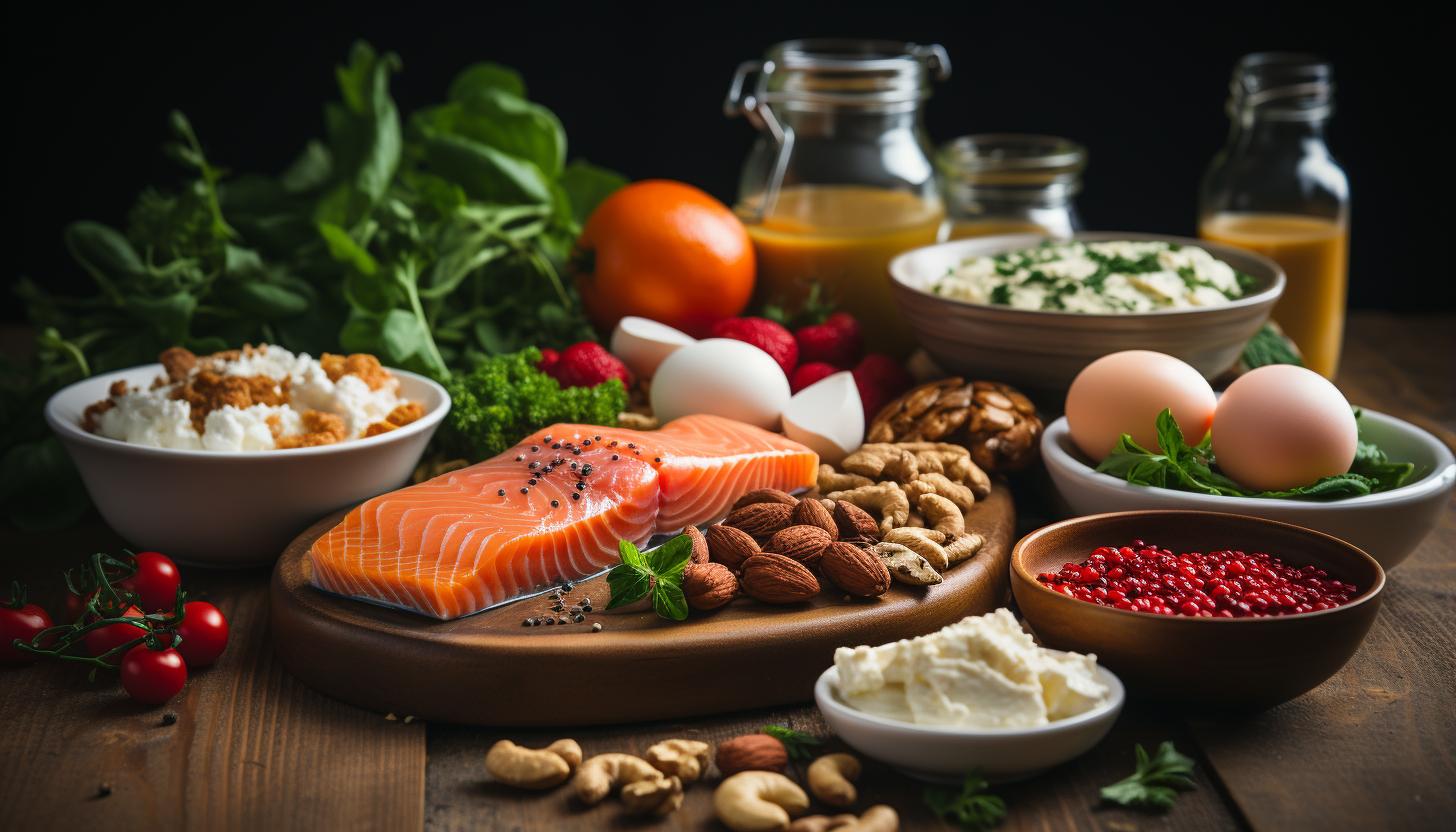
Choosing the right protein for muscle recovery can greatly impact your fitness journey. When it comes to replenishing your muscles after a workout, protein powder options are a convenient and effective choice.
Here are two sub-lists that will help you make the best decision:
Protein Powder Options:
– Whey Protein: Derived from milk, whey protein is known for its fast absorption rate and high amino acid content, making it ideal for post-workout muscle repair.
– Plant-Based Protein: If you follow a vegetarian or vegan diet, plant-based protein powders like pea, hemp, or brown rice protein are excellent alternatives. These options provide all the essential amino acids necessary for muscle recovery.
Vegetarian Protein Sources:
– Greek Yogurt: With approximately 17 grams of protein per serving, Greek yogurt is an excellent option for vegetarians. It also contains probiotics that aid digestion.
– Quinoa: This versatile grain is not only rich in protein but also packed with essential nutrients like iron and magnesium. It can be easily incorporated into salads or used as a base for main dishes.
By incorporating these protein powder options and vegetarian sources into your diet, you can ensure proper muscle recovery while following your preferred dietary preferences.
Remember to consult with a healthcare professional or registered dietitian to determine the right amount of protein intake based on your individual needs and fitness goals.
Optimal Timing for Protein Consumption After Running

After a run, it’s important to consume protein within a specific time frame for maximum effectiveness. Post-run nutrition plays a crucial role in muscle synthesis and recovery. When you exercise, your muscles undergo stress and micro-tears, and consuming protein helps repair and rebuild them stronger. Research suggests that consuming protein within 30 minutes to two hours after exercise can optimize muscle synthesis.
To meet your post-run protein needs, opt for high-quality sources such as lean meats like chicken or turkey, eggs, Greek yogurt, cottage cheese, or plant-based options like tofu or legumes. These foods provide essential amino acids that are necessary for muscle repair.
In addition to timing and source, the amount of protein consumed is also important. Aim for around 20-30 grams of protein per meal or snack after your run.
While whole food sources are generally sufficient to meet your post-run protein needs, there may be instances where supplements can be beneficial. Protein supplements can offer convenience and ease of digestion in certain situations such as when whole food options are not readily available or if you have specific dietary restrictions.
Transitioning into the next section about ‘protein supplements: are they necessary for runners’, let’s explore whether these supplements should be an essential part of a runner’s diet or if they are optional additions to support their nutritional goals.
Protein Supplements: Are They Necessary for Runners
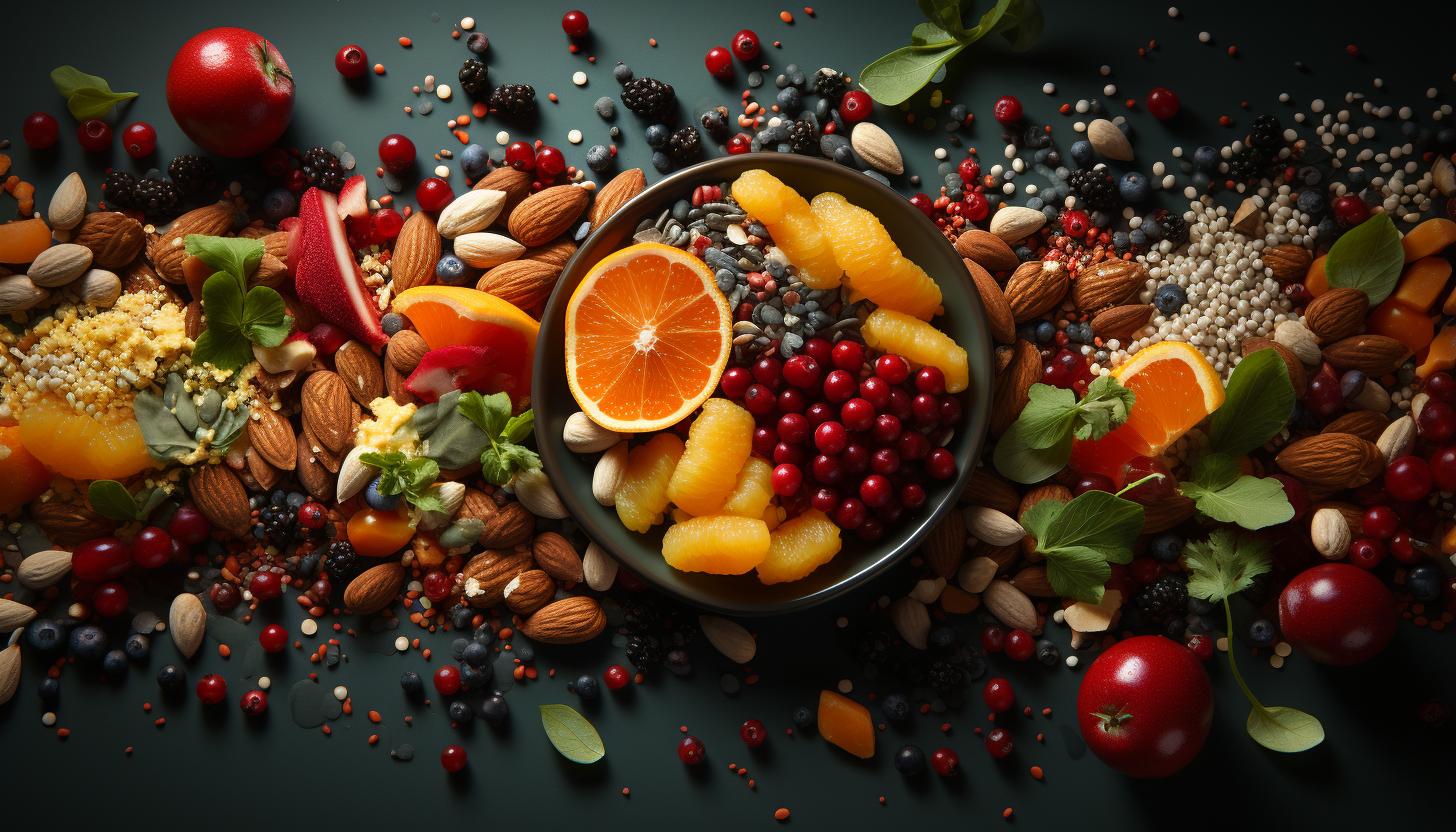
Transitioning into the discussion of protein supplements for runners, it’s worth exploring whether these supplements are essential or optional additions to support their nutritional goals. When considering the effectiveness of protein supplements, it is important to understand that they can be beneficial but are not necessarily required. Here are some key points to consider:
– Protein supplement effectiveness:
– Protein supplements can be convenient and provide a quick source of protein after a workout.
– They may help with muscle recovery and repair due to their high amino acid content.
– Alternatives to protein supplements:
– Whole foods such as lean meats, fish, eggs, dairy products, legumes, and nuts also provide ample amounts of protein.
– Consuming balanced meals and snacks that include a variety of whole foods can meet your protein needs without relying solely on supplements.
While protein supplements can be helpful in certain situations, they should not replace whole foods as the main source of nutrition for runners. It is important to prioritize a well-rounded diet that includes plenty of protein-rich meals and snacks to support running and muscle repair.
Now let’s dive into the next section where we will explore different sources and timing for consuming protein in order to optimize your running performance and recovery.
Protein-Rich Meals and Snacks to Support Running and Muscle Repair
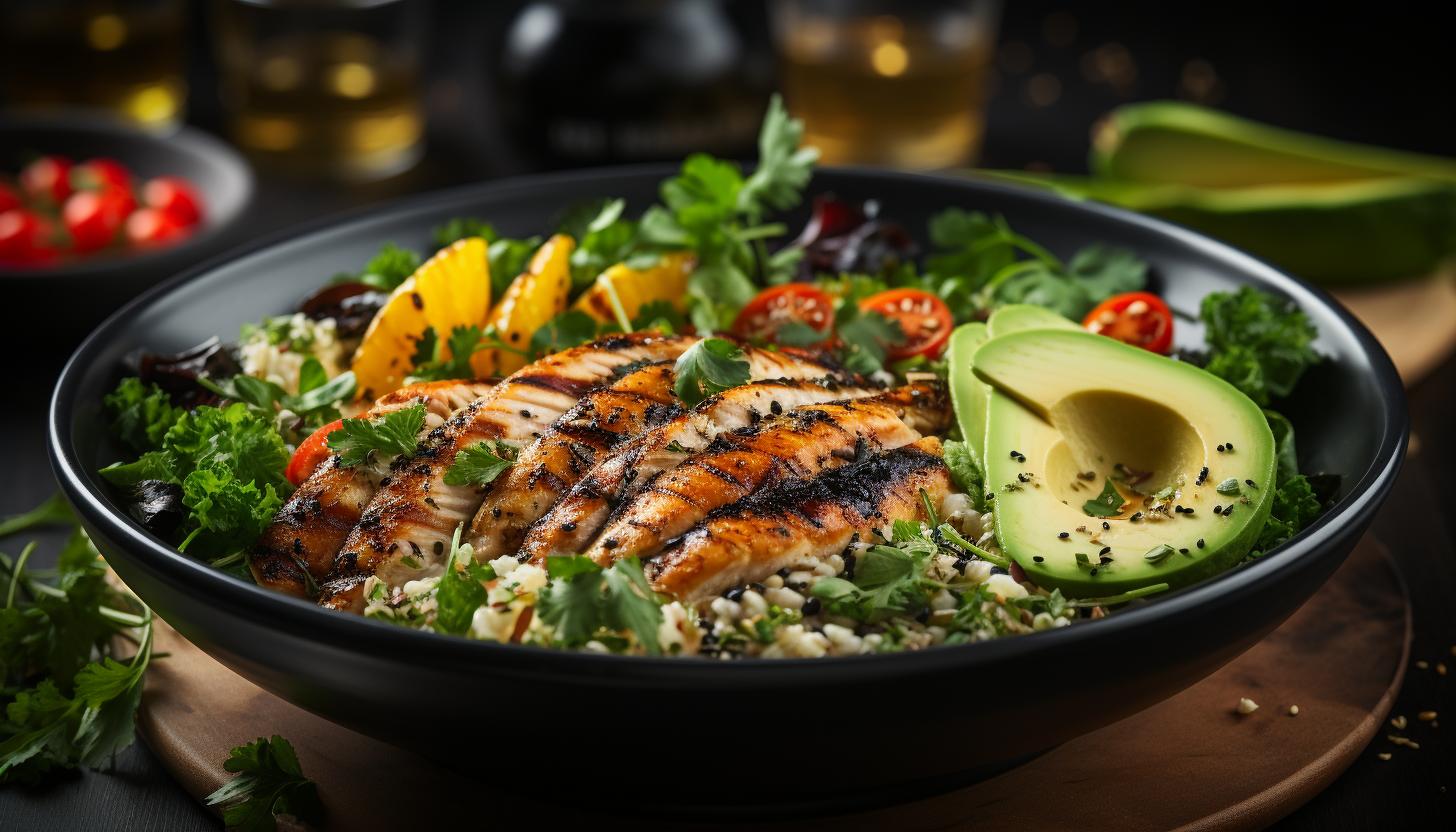
To support your running and promote muscle repair, it’s important to incorporate protein-rich meals and snacks into your diet. Post-workout nutrition plays a crucial role in maximizing protein synthesis, which is the process by which your body builds and repairs muscle tissue. Consuming protein after exercise helps stimulate this process, leading to faster recovery and improved performance.
When choosing protein sources for your post-workout meals or snacks, opt for options that are easily digestible and contain all essential amino acids. Good examples include lean meats like chicken or turkey breast, fish such as salmon or tuna, eggs, Greek yogurt, cottage cheese, and plant-based options like tofu or tempeh. These foods provide high-quality protein that can be quickly absorbed by your muscles.
In terms of timing, aim to consume a protein-rich meal or snack within 30 minutes to an hour after finishing your workout. This window of opportunity is when your muscles are most receptive to nutrients and can benefit the most from protein intake. Pairing your protein source with carbohydrates can also help replenish glycogen stores and further support recovery.
Remember that everyone’s nutritional needs may vary based on factors such as training intensity and goals. It’s always a good idea to consult with a registered dietitian who specializes in sports nutrition to create an individualized plan that suits you best.
Conclusion
So there you have it! Protein is absolutely crucial for runners like yourself. It’s like the superhero that swoops in to save your muscles from the villains of fatigue and damage.
By choosing the right protein sources and consuming them at the optimal time, you can enhance your muscle recovery and improve your running performance.
While protein supplements may not be necessary for all runners, they can certainly be a convenient option.
So go ahead, fuel up with protein-rich meals and snacks, and watch your running prowess skyrocket!



